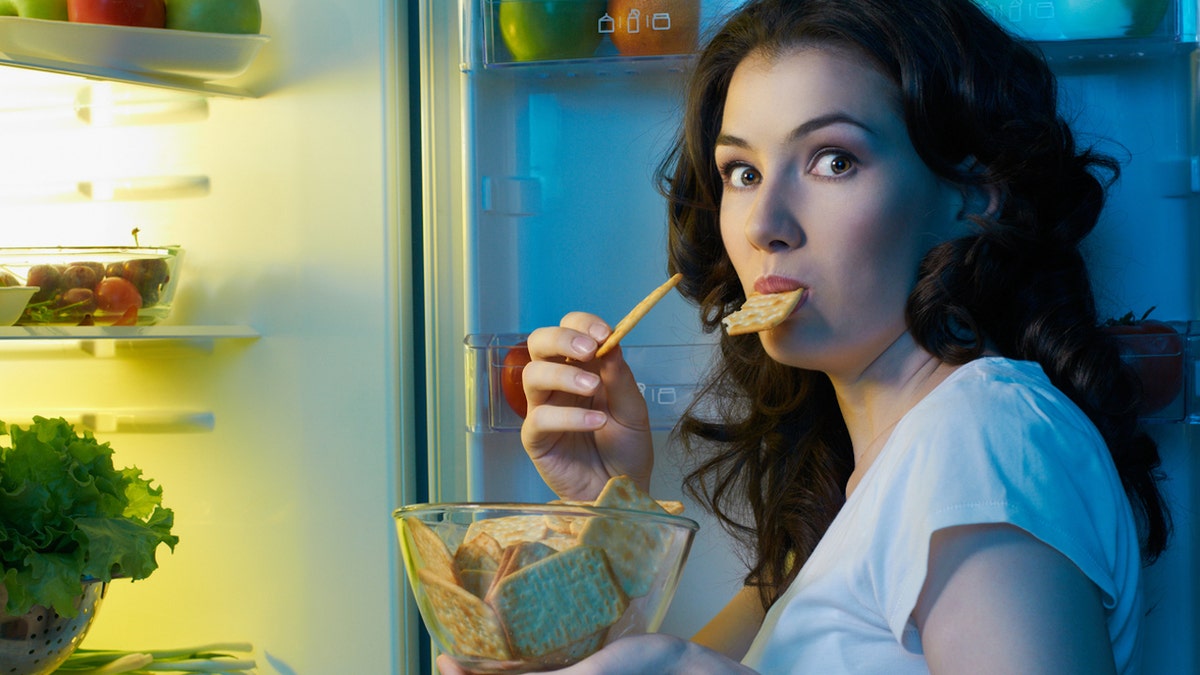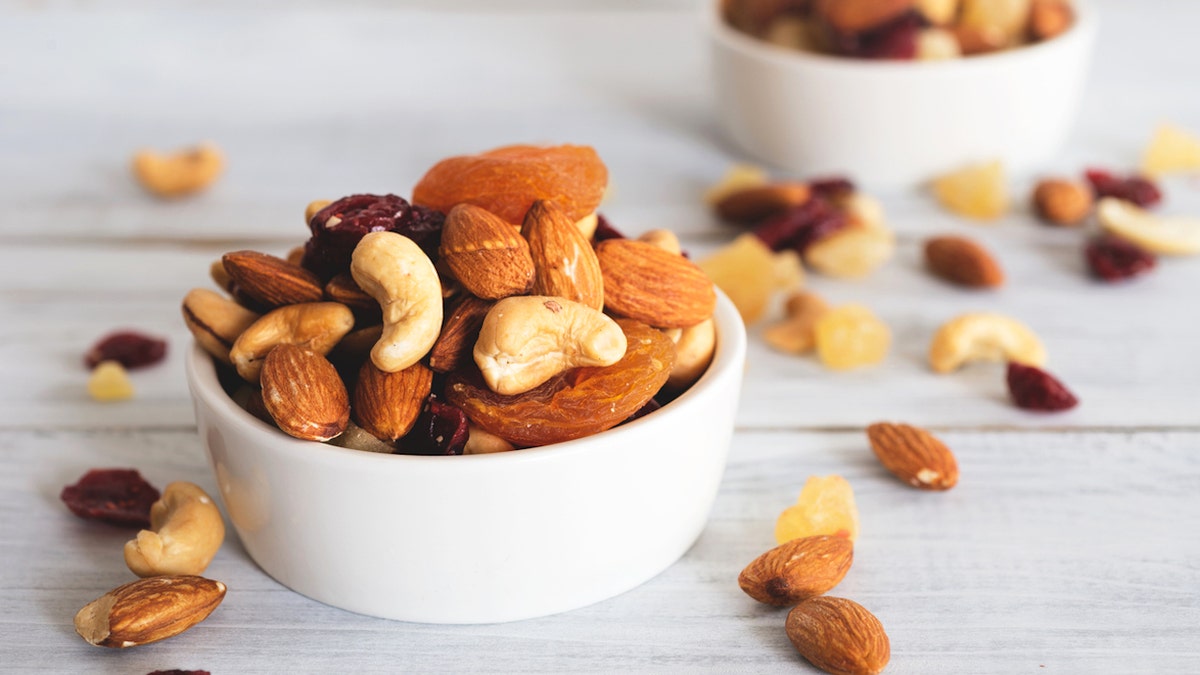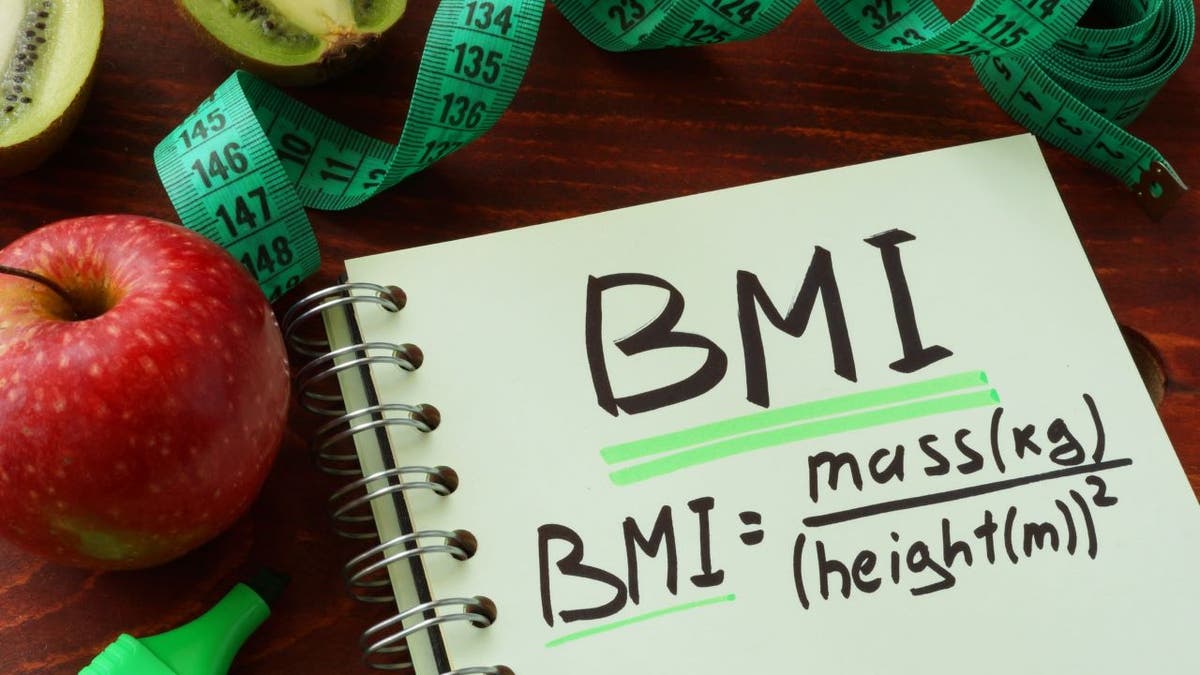Health
Having trouble sleeping? It could be for this surprising reason, experts say

When creating an ideal sleeping environment, you might think of lighting, temperature and sound — but what about food?
What you eat during the day can have a surprising impact on how well you sleep at night, according to experts.
“Food choice is an essential consideration for ensuring good sleep quality. Some types of food promote sleep while others may cause sleep disruption,” Dr. Chelsie Rohrscheib, head sleep expert at Wesper, a sleep analysis company in New York, told Fox News Digital.
LACK OF SLEEP COULD BE A FACTOR IN A ‘SILENT EPIDEMIC,’ EXPERTS WARN
Here’s what to know.
Signs that food is interfering with sleep
If after eating you’re struggling to fall asleep, waking up often during the night or experiencing heartburn, acid reflux or indigestion, your food choices could be the culprit, according to Dr. Raj Dasgupta, chief medical adviser at Sleepopolis in California.
What you eat can have an impact on how well you sleep at night, experts say. (iStock)
Other warning signs include experiencing restlessness or stomach discomfort, needing more frequent bathroom breaks at night, or waking up feeling groggy or unrested.
“Having intense dreams or nightmares or noticing changes in your usual sleep routine” are other indications that food could be interfering with sleep, Dasgupta said.
“Paying attention to these cues can help you figure out if certain foods or drinks are messing with your sleep quality, so you can make adjustments as needed for better rest,” he said.
Best foods to eat for quality sleep
Foods that encourage better sleep include meals with a good amount of lean protein, meals that are high in fiber, and meals that are rich in complex carbohydrates, according to Rohrscheib.
“This food combination keeps us feeling full and satisfied throughout the night and prevents us from waking up from hunger,” she said.

“Having intense dreams or nightmares or noticing changes in your usual sleep routine” are other indications that food choices could be interfering with sleep, an expert said. (iStock)
“It also reduces the risk of indigestion and heartburn.”
Foods containing dairy are especially beneficial, she said, because they contain tryptophan, an amino acid that is essential for the production of serotonin and melatonin, two chemicals needed for sleep.
“Food choice is an essential consideration for ensuring good sleep quality.”
Bananas can also help promote sleep, according to Dasgupta.
“They contain magnesium and tryptophan, which can help you relax and boost production of sleep-inducing hormones,” he told Fox News Digital.

Almonds provide magnesium for muscle relaxation and also contain protein and healthy fats to keep blood sugar levels stable, said an expert. (iStock)
Almonds also provide magnesium for muscle relaxation; they contain protein and healthy fats to keep blood sugar levels stable, he said.
“Cherries contain natural melatonin, potentially helping to regulate your sleep-wake cycles,” Dasgupta said.
IMPROVE YOUR SLEEP BY OPTIMIZING 6 BIOMARKERS: ‘INTEGRAL TO HEALTH’
Oatmeal is also a sleep-friendly food.
“Its complex carbohydrates increase serotonin levels, while its melatonin content helps to regulate sleep,” said Dasgupta.
As we all hear around Thanksgiving time, turkey is rich in tryptophan, facilitating the production of serotonin and melatonin, Dasgupta noted.

Bananas can help with quality sleep because they contain magnesium and tryptophan, which can promote relaxation, an expert said. (iStock)
“Kiwi is loaded with antioxidants, vitamins and serotonin, all of which support sleep pattern regulation,” he said.
Dasgupta also recommends eating Greek yogurt to promote improved sleep, as its calcium content assists in the body’s use of tryptophan for melatonin production, while its protein helps maintain blood sugar levels.
6 SURPRISINGLY SIMPLE WAYS TO KEEP YOURSELF HEALTHY (HINT: SLEEP IS INVOLVED)
“Finally, warm milk, with its tryptophan content and comforting warmth, can help you relax” for a good night’s sleep, he said.
Those who are lactose-intolerant can opt for warm almond milk.
Foods that can disrupt sleep
Some foods are more likely to cause indigestion and heartburn, which makes it difficult to fall asleep and maintain sleep, according to Rohrscheib.
“This includes foods with high fat or acid content, foods containing caffeine, or spicy foods,” she said.
Dasgupta agreed that eating heavy or spicy foods ahead of bedtime can cause stomach discomfort, heartburn and acid reflux, which can make it harder to settle down comfortably.

Eating heavy or spicy foods can cause stomach discomfort, heartburn and acid reflux, which can make it harder to settle down comfortably for the night, an expert said. (iStock)
“Greasy or heavy meals take longer to digest, which can leave you feeling uncomfortable and disrupt your sleep,” he advised.
Caffeine is also a common culprit in sleep disruption — experts recommend avoiding it in the hours leading up to bedtime.
CLICK HERE TO SIGN UP FOR OUR HEALTH NEWSLETTER
“Any food containing caffeine, even small amounts, should be avoided to prevent sleep disruption,” Rohrscheib said. “This includes coffee, some teas, sodas, energy drinks and some chocolates.”
It’s best to abstain from alcohol as well, Dasgupta said. “While it might seem like a nightcap, it messes with your sleep cycles, leading to worse sleep quality.”

Caffeine is also a common culprit in sleep disruption — experts recommend avoiding it in the hours leading up to bedtime. (iStock)
Highly processed foods and foods containing high amounts of sugar cause a quick spike in glucose levels and increase the risk of a “blood sugar crash,” also known as hypoglycemia, Rohrscheib warned.
“When we’re hypoglycemic, our brain will attempt to wake us up to eat more food to normalize our blood glucose levels,” she said. “Thus, these foods should be avoided before bedtime.”
“Consuming too much and making yourself over-full is likely to make you uncomfortable and cause poor sleep quality.”
“Lastly, processed or junk foods, loaded with additives and unhealthy fats, can throw off your sleep patterns,” Dasgupta added.
Portion size is also a factor in sleep quality, both experts agreed.
“Regardless of the type of meal you eat, consuming too much and making yourself over-full is likely to make you uncomfortable and cause poor sleep quality,” Rohrscheib said.
For more Health articles, visit www.foxnews.com/health.

Health
Celebrity Weight Loss Transformations: See Their Before and After Photos!

Sign Up
Create a free account to access exclusive content, play games, solve puzzles, test your pop-culture knowledge and receive special offers.
Already have an account? Login
Use left and right arrow keys to navigate between menu items.
Use escape to exit the menu.
Health
BMI is wrong way to measure obesity, researchers say — here’s what they recommend instead

A group of 58 researchers is calling for a new, better way to measure obesity.
The global team’s recommendations were published in The Lancet Diabetes & Endocrinology on Jan. 14.
Body mass index (BMI) has been the international standard for measuring obesity since the 1980s, according to many sources, though some experts have questioned its validity.
OZEMPIC ‘MICRODOSING’ IS THE NEW WEIGHT-LOSS TREND: SHOULD YOU TRY IT?
A person’s BMI is calculated by dividing his or her weight by the square of his or her height in feet.
Body mass index (BMI) has been the international standard for measuring obesity since the 1980s, according to many sources, though some experts have questioned its validity. (iStock)
“Obesity is a complex problem and has different significance at the individual level,” the report’s lead author Francesco Rubino, chair of bariatric and metabolic surgery at King’s College London, United Kingdom, told Fox News Digital.
Obesity is a “spectrum,” he said, rather than a “single, distinct clinical entity.”
Rubino went on, “It is impossible to say if obesity is a disease or not, as disease status cannot coincide with body size or mere excess body fat.”
DR. NICOLE SAPHIER ON ULTRA-PROCESSED FOODS IN AMERICA: ‘PEOPLE PROFIT OFF ADDICTION’
The Commission on Clinical Obesity has proposed a “reframing” of obesity that distinguishes between people who have a disease here and now, and those who may have a risk for future disease, Rubino said.
Instead of relying solely on BMI, the researchers recommend also measuring adiposity, which is the amount of excess body fat.

A person’s BMI is calculated by dividing his or her weight by the square of his or her height in feet. (iStock)
Adiposity can be determined by measuring a person’s waist circumference or taking body scans to measure fat mass, according to the researchers.
The group of experts recommends using two levels of obesity: preclinical and clinical.
With preclinical obesity, the person has excess body fat that has not affected the function of their tissues and organs.
“People with clinical obesity suffer from a chronic illness and should be treated in the same way as people who suffer from any other chronic disease.”
The person may have, however, an increased risk of developing clinical obesity, type 2 diabetes, heart disease and some types of cancer, the researchers noted.
Clinical obesity is defined as “a chronic, systemic illness characterized by alterations in the function of tissues, organs, the entire individual or a combination thereof, due to excess adiposity.”
DIABETES AND WEIGHT LOSS DRUGS SHOWN TO REDUCE ALCOHOL-RELATED HOSPITALIZATIONS, STUDY FINDS
With clinical obesity, the person may experience “severe end-organ damage, causing life-altering and potentially life-threatening complications,” the researchers wrote.
Potential effects of clinical obesity may include heart attack, stroke and kidney failure.
“As these categories of obesity are entirely new, we can’t measure their relative prevalence in the population,” Rubino noted. “Doctors have not yet had the possibility to make such a diagnosis, because many of the organ dysfunctions that characterize clinical obesity have not been routinely assessed so far.”

When excess body fat is confirmed, clinicians should assess individuals to determine whether obesity may have caused any organ dysfunction, the study researcher said. (iStock)
The researchers call for future studies into these diagnoses.
“We recommend that clinicians thoroughly assess people with obesity in the clinic and use other measures of body size — waist circumference or others — to understand if an increased BMI level is due to excess body fat or other reasons, like increased muscle mass,” Rubino told Fox News Digital.
‘HIDDEN’ FAT COULD PREDICT ALZHEIMER’S DISEASE UP TO 20 YEARS BEFORE SYMPTOMS, RESEARCH FINDS
When excess body fat — meaning obesity — is confirmed, clinicians should assess individuals to determine whether obesity may have caused any organ dysfunction, the researcher said.
“People with clinical obesity suffer from a chronic illness and should be treated in the same way as people who suffer from any other chronic disease,” Rubino said.
People with preclinical obesity should undergo “evidence-based health counseling, monitoring of their health status over time, and, when applicable, appropriate intervention to reduce risk of developing clinical obesity,” they wrote.
Between August 2021 and August 2023, approximately 40% of U.S. adults had obesity, according to the Centers for Disease Control and Prevention (CDC). Around 9.4% of those adults had severe obesity.
‘Outdated measure’
Dr. Brett Osborn, a neurosurgeon, longevity expert and fitness competitor based in Florida, agrees that BMI is an “outdated measure” for diagnosing obesity.
“It is clear that obesity should no longer be defined solely by physical appearance or weight.”
“As medicine evolves, it is clear that obesity should no longer be defined solely by physical appearance or weight — or weight relative to height, as in BMI calculations,” the doctor, who was not involved in this new research, told Fox News Digital.
“Instead, the condition must be understood through the lens of metabolic dysfunction.”
Obesity isn’t just a disease of excess weight, Osborn said, but a “systemic metabolic disorder requiring nuanced and individualized care.”
The condition is better measured by looking at factors like inflammation, insulin resistance and glucose tolerance, according to the doctor.
CLICK HERE TO SIGN UP FOR OUR HEALTH NEWSLETTER
In some cases, using BMI can result in “muscular athletes” being labeled as obese, he noted, and people with “normal” BMI can sometimes have “harmful” levels of visceral (abdominal) fat.
Osborn noted that in his own clinic, he and his team do not use BMI, relying instead on visceral fat scores, skeletal muscle mass and body fat percentage.

In some cases, using BMI can result in “muscular athletes” being labeled as obese, one doctor noted. (iStock)
Skeletal muscle mass (the muscles that connect to the bones) is critical to physical strength and metabolic efficiency, Osborn said.
For optimal health, he recommends that males aim for 50% skeletal muscle mass relative to total body weight and females target 45% — although other factors, like age and fitness levels, come into play.
For more Health articles, visit www.foxnews.com/health
“Remember, your resilience — your ability to ward off disease — resides in your muscle,” Osborn added.
“By integrating body composition metrics, metabolic markers and personalized assessments, we can more accurately diagnose obesity and tailor interventions to each individual.”
Health
Water for Weight Loss? How Much You Should Drink to Shed More Weight

Sign Up
Create a free account to access exclusive content, play games, solve puzzles, test your pop-culture knowledge and receive special offers.
Already have an account? Login
Use left and right arrow keys to navigate between menu items.
Use escape to exit the menu.
-

 Science1 week ago
Science1 week agoMetro will offer free rides in L.A. through Sunday due to fires
-
/cdn.vox-cdn.com/uploads/chorus_asset/file/23935558/acastro_STK103__01.jpg)
/cdn.vox-cdn.com/uploads/chorus_asset/file/23935558/acastro_STK103__01.jpg) Technology1 week ago
Technology1 week agoAmazon Prime will shut down its clothing try-on program
-
/cdn.vox-cdn.com/uploads/chorus_asset/file/25826211/lorealcellbioprint.jpg)
/cdn.vox-cdn.com/uploads/chorus_asset/file/25826211/lorealcellbioprint.jpg) Technology1 week ago
Technology1 week agoL’Oréal’s new skincare gadget told me I should try retinol
-
/cdn.vox-cdn.com/uploads/chorus_asset/file/25832751/2192581677.jpg)
/cdn.vox-cdn.com/uploads/chorus_asset/file/25832751/2192581677.jpg) Technology5 days ago
Technology5 days agoSuper Bowl LIX will stream for free on Tubi
-

 Business7 days ago
Business7 days agoWhy TikTok Users Are Downloading ‘Red Note,’ the Chinese App
-
/cdn.vox-cdn.com/uploads/chorus_asset/file/25835602/Switch_DonkeyKongCountryReturnsHD_scrn_19.png)
/cdn.vox-cdn.com/uploads/chorus_asset/file/25835602/Switch_DonkeyKongCountryReturnsHD_scrn_19.png) Technology3 days ago
Technology3 days agoNintendo omits original Donkey Kong Country Returns team from the remaster’s credits
-

 Culture3 days ago
Culture3 days agoAmerican men can’t win Olympic cross-country skiing medals — or can they?
-
/cdn.vox-cdn.com/uploads/chorus_asset/file/24774110/STK156_Instagram_threads_1.jpg)
/cdn.vox-cdn.com/uploads/chorus_asset/file/24774110/STK156_Instagram_threads_1.jpg) Technology1 week ago
Technology1 week agoMeta is already working on Community Notes for Threads















